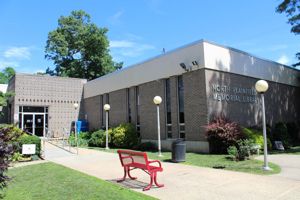Explore Transforming Journalism Through Virtually-Hosted Library Program Featuring Author and Professor John Pavlik
About Blog Post
Aug 10, 2020
by Pressroom
The inception of new media forms, especially augmented and virtual reality, have evolved journalism. Discover how new technologies are changing the way information is shared and received by audiences across the globe with the Somerset County Library System of New Jersey (SCLSNJ) and Professor John Pavlik of Rutgers School of Communication and Information.
During the virtual program, hosted on August 18 from 7-8 p.m., Pavlik will delve into his latest release, “Journalism in the Age of Virtual Reality: How Experiential Media are Transforming News.” The book explores experiential media forms and their impact on journalism, media, and, ultimately, society.
“Some news media have adapted or innovated and continued to create quality journalism,” said Pavlik. “In some cases, such as ‘The New York Times,’ audiences have increased significantly, digital subscriptions have surged, and revenues have grown. In these cases, quality reporting has been supplemented by the development of more immersive journalism, such as news content using augmented reality and virtual reality to engage audiences and to more effectively utilize digital, mobile, and wearable platforms.”
Augmented reality is a platform that allows the user to receive digital information in real-time onto real-world scenes as seen through the camera in a smartphone or head-worn device. Virtual reality systems replace the user’s direct experience with the real world through a computer-mediated environment including holographic and wearable displays.
“Journalism is at a crossroads,” said Pavlik. “Technological change, economic shifts, and cultural divisions have converged to disrupt the journalism industry. Public trust in news media has eroded, although research shows that the public appetite for news continues to be strong. As a result many news media have struggled to survive, seeing audiences decline and advertising revenues flow away to digital platforms.”
With such a large selection of news online, finding credible sources of information on the internet can be a challenge for consumers. Pavlik suggests asking these important questions: “Are they diverse sources? Are they reliable sources? Do those sources have a vested interest in the story that might make them biased?”
“It is also important to look at more than one news source to compare how they report about the same news event or story,” said Pavlik. “Looking at diverse sources of news is important, too, as each news organization may bring its own cultural, political, or commercial perspective.”
Explore news sources available at SCLSNJ:
- Courier News
- Global Newsstream
- Historical New York Times (Covers 1851 - 2015)
- New York Times (In branch use only)
- News for You
- Newsbank
- The Star-Ledger Collection
- Wall Street Journal (In branch use only)








